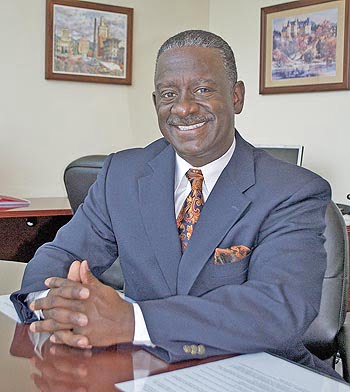About Hospice

By Maceo Keeling
First, I’d like to shed some light on an unfortunate and costly myth about hospice.
Many of us believe that hospice is a “place” where you go to die. Hospice is not a place: Hospice is a concept about personal care as one approaches the end of life.
When hospice began, it was a volunteer group of people who offered emotional and medical support to families of people facing terminal illnesses. The volunteers gave their time and attention at no cost to the patient or their family.
When I began my research about hospice care for this article, I discovered some intriguing information; in addition, my own personal experience with hospice offers even more insight. I found the service and the care to be very comprehensive. It included not only the patient but the family as well.
The constant demands of an aging spouse or parent can cause stress and even sickness for a family member who is the primary care giver. The nurses who delivered palliative care provided support and respite for my mother from the continuing demands of my father’s aging and sickness.
Now, clearly I am not advocating that you give your loved one over to hospice and then walk away. I am, however, encouraging that you do your homework and take advantage of hospice service in conjunction with your own ongoing prayer and care.
A major challenge in hospice care is to help families close the gap between accepting the truth about death and dying and creating an emotional bridge between their hopes for a medical miracle and the acceptance of approaching death. Crossing that bridge takes time and emotional courage; hospice can provide the time and help you find the courage.
When my wife passed, I did not have a clear understanding of hospice and the comprehensive services they provided or the types of support they could have given to Helen and me. They often serve to help patients maintain their dignity at a time when their health is failing quickly and death seems imminent. They help the primary caregiver with pain management, so as to keep patients comfortable or even pain-free during their final transition.
Of course, not all hospice care is created equal. You are responsible for choosing the right person or team to help you manage the transition of a loved one. But I have come to better understand the services hospice offers with the recent passing of my own father.
Hospice is not a service of which you need to be afraid. It is now a “standard of care” that every human being is entitled to receive. Yet African Americans don’t use or even trust hospice nearly as often as white families do.
There is no question that the black community endures health disparities in both care and access to care. In some places there is still a presumption that black folk don’t want—or worse, don’t deserve—the same level of care and respect as some other folk. There are also other reasons that people avoid using hospice services, including fear or denial that the loved one is dying, or even distrust of hospice care; but barring those negative reasons, you should know that the service is available and can give you and your loved one the care you need.
Hospice is covered by Medicare, and in spite of the fact that there are pressures on hospice providers and the stays are usually less than two months, it provides the family time to get their head around the real situation: A loved one is dying.
I encourage you to get information from your physician or a hospice nurse on the benefits of hospice. Hospice provides the level of care every person should be able to experience as they transition or die. Hospice nurses and caregivers are being trained in culturally appropriate communication so they can ensure the delivery of proper end-of-life care for every patient—including black people and other peoples of color.
To get more insight and a better sense of who is getting this much-needed training, visit www.transitionshealthsystems.com or email [email protected]. Also, tune in to WRES FM 100.7 on your radio as I will have a dialogue with Dr. Clair Hicks to discuss more on this topic. This is too important to be ignored.
We need to tell the truth and get real with ourselves and each other. Death is an unavoidable part of our life experience, so let’s make the transition with some dignity and even comfort.
Now that we are talking about it let’s be about it! For more information contact Sharon Kelly West at (828) 231-8907 for a consultation on end-of-life care and how to identify high-quality service providers.
Remember, you don’t have to be great to start something, you do have to get started to become great!
Answer the Call…
The Conscious Call radio program airs every Monday at 11:30 a.m. on WRES-FM 100.7. In a collaboration with the radio program, the Urban News will help keep readers informed about events, programs, news, and the progress of The Conscious Call. The opinions and statements made in this column are solely the opinions of the author and not necessarily those of the Urban News.








